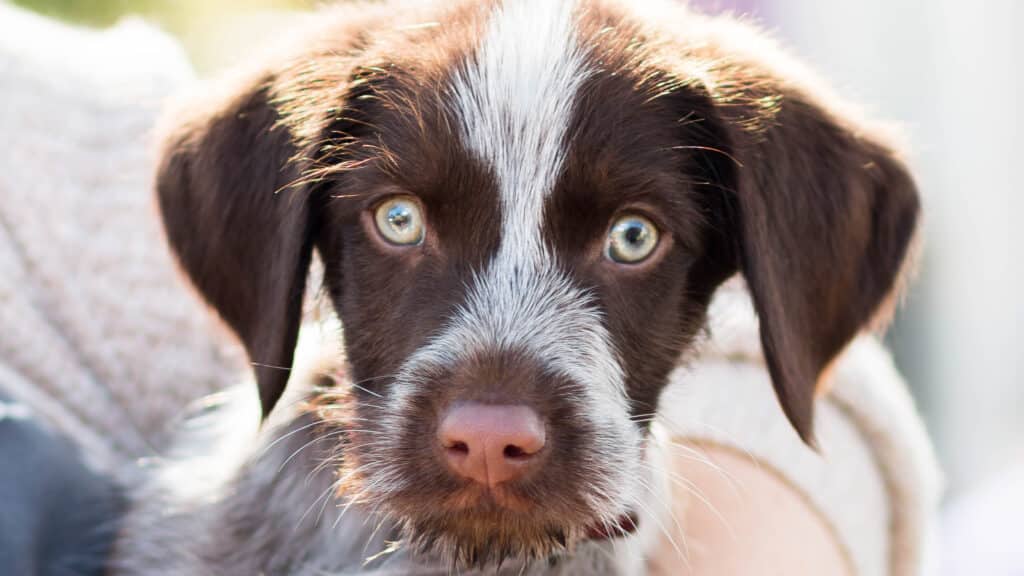Home > Information and Advice > Caring for Animals > Pet Hazards > Snake Bites
Protecting your pet from snake attacks can be as simple as keeping them on a lead when enjoying the outdoors, particularly during the summer months (when snakes are much more active). Keeping the grass in your backyard low and minimising spaces snakes can use to hide are just a few other ways you can safeguard your pet.
If you think your pet has been bitten by a snake, do your best to keep them calm and quiet, but take them to a veterinarian immediately. Their chances of recovering from a snake bite are significantly greater the earlier they are treated.
If you believe your pet has been bitten by a snake, please contact your local veterinarian or nearest veterinary hospital for emergency assistance.

If you think your pet has been bitten by a snake, it is essential that you take them to your local veterinarian or your nearest veterinary hospital. Your pet has a greater chance at recovering from a bite the sooner they are treated – it is even possible for pets to recover within 48 hours. However, pets who are left untreated have a much lower survival rate, which is why it is imperative that you respond immediately.
If your veterinarian is far away, you will need to administer basic animal first aid. Do your best to calm your pet down before firmly applying a pressure bandage (a bandage placed over and around the wound that isolates the bite site) to help keep the venom from spreading to their heart. Do not wash the wound or apply a tourniquet.
If you can identify the snake, tell your veterinarian, but don’t try to catch or kill the snake. If the snake is dead, you can bring it with you. Otherwise, there is a blood or urine test that can identify whether your pet has been bitten and the type of snake that was responsible. Once the snake has been identified, your veterinarian can administer antivenom. Please be warned that antivenom is quite expensive and can result in a hefty veterinary bill.
Remember, when dealing with snake bites, responding immediately is key. If you believe your pet has been bitten by a snake, please call your local vet or veterinary hospital for urgent assistance and support.



RSPCA NSW rehomes a range of different animals, from dogs, cats, and birds to horses, rabbits, and sheep! We believe that all creatures, great and small, can bring joy to our families and homes. Begin your adoption journey today and make an adorable lifelong friend!
By providing temporary homes for our animals, we can ensure they get the care they need until they are ready to be adopted. Join our network of foster carers for an incredibly rewarding experience; with your help, we can change the lives of some of the state’s most vulnerable animals.
We rely on our generous supporters to continue assisting the thousands of animals turning to RSPCA NSW for help. No matter how small your contribution, every gift makes a lifesaving difference for animals in need.
By raising funds and lending a hand to communities and their pets, our volunteers play a pivotal role in our work throughout NSW. If you have a genuine concern for animals and enjoy meeting like-minded people, consider becoming an RSPCA NSW volunteer today!
We promise to uphold the highest ethical standards. Your personal information has never been, and never will be sold or traded to other charities. This is our promise to you.



We acknowledge the Traditional Owners of the lands on which we live and work. We recognise and respect the enduring relationship they have with their lands and waterways, and particularly acknowledge the vital role animals have played in Indigenous life, stories and culture for tens of thousands of years.
The RSPCA is an independent, community-based charity providing animal care and protection services across the country.
This site is protected by reCAPTCHA and the Google Privacy Policy and Terms of Service apply.
The RSPCA is an independent, community-based charity providing animal care and protection services across the country.


This site is protected by reCAPTCHA and the Google Privacy Policy and Terms of Service apply.